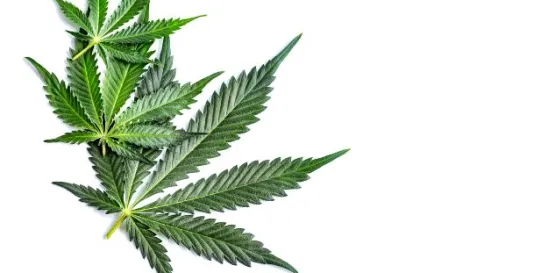Once hailed by observers as the southern state most likely to legalize marijuana first, North Carolina has not kept pace with its northern neighbors in adopting laws to promote the growth of a vibrant medicinal and personal-use marijuana industry. While 2023 saw a number of bills introduced in the House and Senate that touched on the legalization and regulation of hemp, medicinal and adult personal usage, last month the North Carolina General Assembly adjourned for the year with no bills having passed, leaving open a number of questions regarding the future of cannabis in the Tar Heel State. Let’s use this as a moment to reflect on where things stand in North Carolina and what’s on the horizon for 2024.
First, as of this post’s publication, growing, distributing, selling and possessing marijuana, for medicinal or personal use, remains illegal in North Carolina.* But due to a recent development in the western part of the state, we’ve now put a huge asterisk at the end of that sentence, which we touch on at the end of this article.
Hemp: Roll ‘Em Easy, So Slow and Easy
While marijuana remains illegal, hemp-derived consumables, including products containing cannabidiol (CBD) and delta-8, remain legal and widely available for adult purchase in North Carolina. Under North Carolina law, “hemp” means the plant Cannabis sativa and any part of that plant, including the seeds thereof and all derivatives, with a delta-9 tetrahydrocannabinol concentration of not more than three-tenths of 1% (0.3%) on a dry weight basis. Hemp farming in North Carolina continues to be overseen by the USDA and while there is currently no fee to apply for a hemp growing license from the USDA, applicants seeking a grow license are subject to a criminal background check.
No new laws were passed in 2023 that touched on the legality or regulation of hemp-derived consumables in the state, but the House unanimously passed HB 563 in September. HB 563 provided for the state to regulate the sale and distribution of hemp-derived consumable products, including requiring a license to sell, distribute, or manufacture hemp-derived consumable products. Given the broad bipartisan support for HB 563 in the House, expect to see the Senate consider HB 563 when the General Assembly reconvenes in 2024.
Medicinal: Doctor, Doctor, Can You Tell Me What’s Ailing Me? Yeah – All You Need Is Good… Marijuana?
By a margin of 36-10, a bipartisan group of senators sponsored and passed SB 3, the North Carolina Compassionate Care Act (NCCCA) in March of this year. SB 3 would allow individuals in North Carolina to obtain a prescription to purchase marijuana for the treatment of certain medical conditions. In the House, representatives from both parties have expressed their intention to vote in favor of SB 3 if it reaches the House floor. House Speaker Tim Moore, however, has cited the House Republican Caucus rule that a majority of its members must be willing to support a bill on the House floor for it to be heard. If Speaker Moore relents on the “majority of the majority” rule and allows the bill to reach the floor, House passage is certainly possible.
If SB 3 is enacted, up to 10 companies would be granted licenses to control the supply and sale of marijuana. Each supplier could also operate up to eight dispensaries. The bill would also call for the creation of the Medical Cannabis Production Commission; the commission would be tasked with overseeing licensing and supervising the state’s marijuana supply and the program’s revenue generation. Unlike marijuana legalization bills favored by North Carolina state Democrats, SB 3 did not contain any equity provisions to favor licenses being preserved for members of communities historically harmed by the criminalization of marijuana. SB 3 was referred to the N.C. House Health Committee for review and could see a full House vote in 2024.
Adult Personal Use: I Must Inquire, Wilson, Can You Still Have Fun?
HB 626 is a bill sponsored by 14 Democrats that would establish a framework for how the state oversees licensing and procedures governing the operation of cannabis establishments, while making the adult possession and use of cannabis for personal use legal. The bill includes provisions that promote access for social equity applicants by establishing community reinvestment, training and education funds. HB 626 raises revenue for the state and these funds by establishing a 30% state cannabis excise tax for sales of cannabis and cannabis products. In addition, HB 626 would allow municipalities to levy an additional tax of 2%. HB 626 is a stand-alone bill that focuses on the legalization of marijuana for adult personal use.
SB 346 is a parallel marijuana legalization bill that is currently in limbo in the Senate. Like HB 626, it is a bill without bipartisan support as so far only seven Democrats have sponsored the bill. Unlike HB 626, it is a more comprehensive legalization bill that includes provisions for both the legalization of personal use and language supporting a framework for legalizing medicinal marijuana.
Will Bipartisan Support Actually Lead to Bipartisan Bills?
Given the political tilt of the North Carolina Senate and House, coupled with certain members of both parties remaining opposed to legalization, passage of any medicinal or personal-use bill would almost certainly require bipartisan support. And while bipartisan support exists in theory, the parties remain far apart on what legalization looks like. SB 3, the medical marijuana bill, reflects the approach favored by certain Republicans that support some level of legalization – their approach calls for limited licenses and opportunities for a limited number of companies to obtain licenses to manufacture, distribute, and sell. Democratic bills to legalize personal use do not propose consolidation of the industry and instead place an emphasis on examining how legalization can be coupled with providing a benefit to communities that have been historically harmed by marijuana criminalization. Will Republicans allow for the inclusion of social equity provisions in Republican-sponsored bills? Will Democrats vote against a legalization bill that limits licensure and fails to guarantee access for historically harmed communities? We’ll be watching closely to see if the bipartisan members that support legalization in theory can find a middle ground on these issues.
*The Eastern Band of Cherokee Indians: Going Out West Where They’ll Appreciate Me
As we alluded to above, in September 2023, the Eastern Band of Cherokee Indians (ECBI) voted to legalize and regulate personal use of marijuana on tribal land. This follows an earlier decision by the tribe to approve the use and sale of medicinal marijuana on its land. The ECBI has begun reviewing applicants and issuing patient cards for medicinal use and, in doing so in this first round, is prioritizing tribal members followed by N.C. residents. All applicants must submit a doctor’s note that identifies a medical condition that can be treated by using marijuana. The ECBI have identified the end of 2023 as their target date for opening their dispensary to adults seeking to purchase marijuana for personal use.





 />i
/>i

